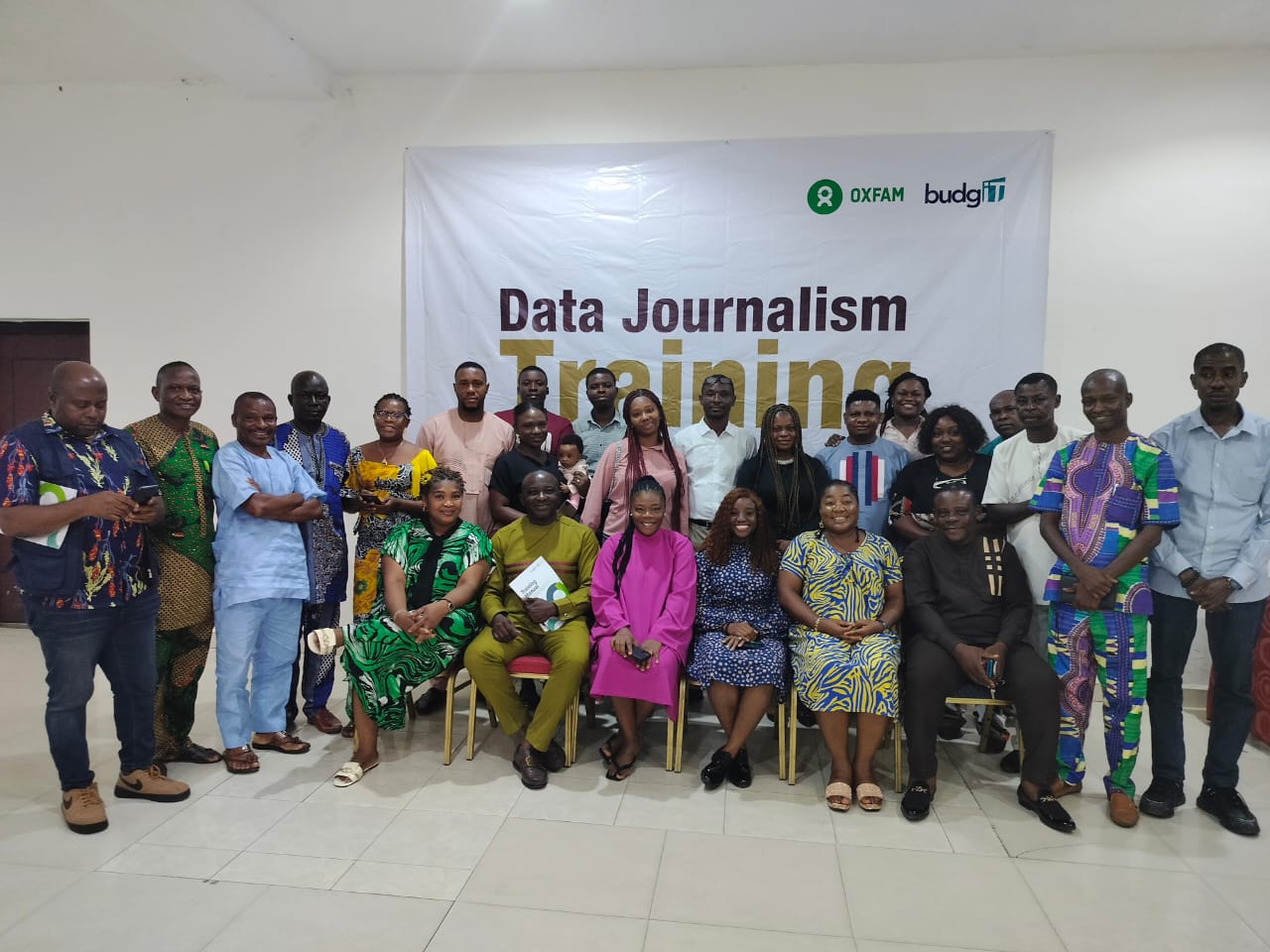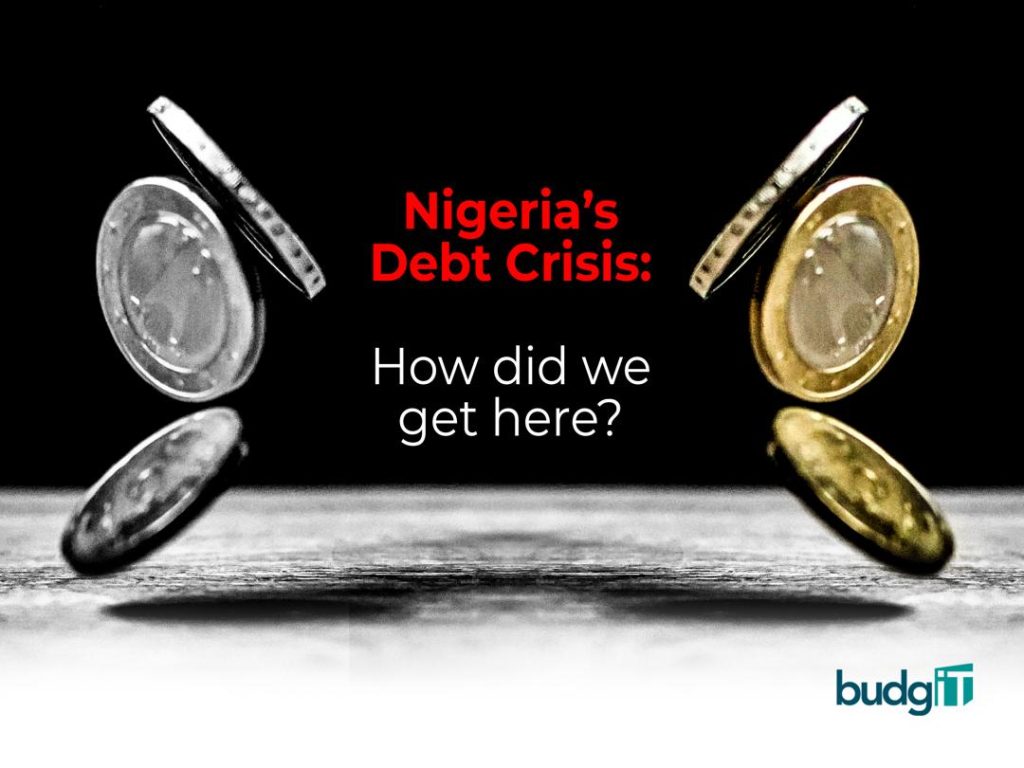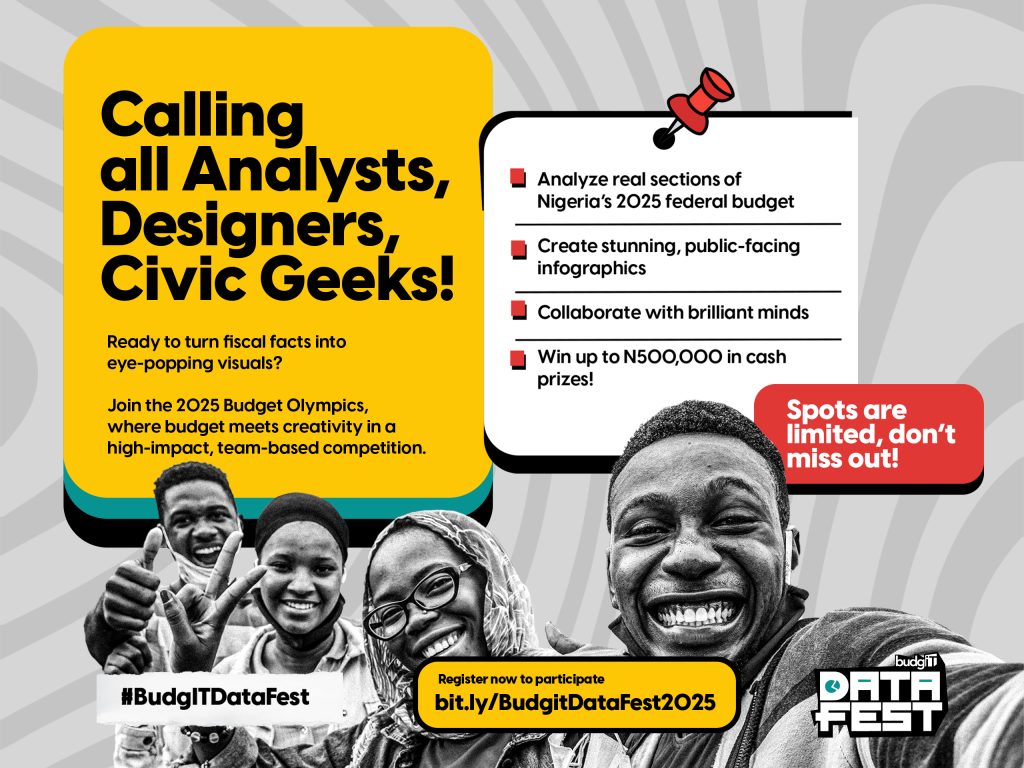Data-Driven Storytelling Training Empowers Journalists for Policy Reform in the Extractive Sector
On Thursday, October 26, 2023, BudgIT, in collaboration with Oxfam Nigeria, held a transformative 1-day capacity development session for journalists in Calabar, Cross River. Its primary focus was to train Journalists how to create compelling data-driven stories to stimulate policy reform in the extractive sector.
The training had 25 journalists properly selected from reputable media organizations, all poised to advocate for good governance and superior service delivery in the extractive sector. The urgency for policy reform in this sector has driven collaborations between the media, civil society organizations, and individuals. To address this need, BudgIT and Oxfam tailored a capacity-building session to empower journalists to craft data-driven narratives that spark reform.
The workshop centered on two key themes: “Effective Communication and Data-Driven Storytelling for Advocacy and Policy Reforms in the Extractive Sector” and “Applying Design Principles for Effective Data Storytelling,” facilitated by BudgIT’s Senior Digital Designer, Bukola Onwordi.
Bukola Onwordi’s presentation illuminated the crucial role of the media and journalists in fostering impactful change through intentional and data-driven storytelling. Her insights resonated with the participants, reinforcing the significance of their role in advocating for reform in the extractive sector.
Bukola spoke on the media’s commanding influence in shaping narratives and capturing the attention of citizens and readers alike. She strongly emphasized the intentional creation of credible stories with the transformative potential to drive reform. She reiterated the power of utilizing data as a catalyst for impactful reporting, highlighting its role as a backbone in journalism.
Bukola spoke passionately about the indispensable role of journalists in the extractive sector, emphasizing their responsibility to convey information with precision and reliability. She urged journalists to be intentional about the stories they tell, ensuring that each narrative contributes to the broader goal of advocating for policy reforms in the extractive industry.
Furthermore, she shed light on the importance of data-driven storytelling, expressing how it transcends traditional reporting methods. According to her, data-driven storytelling enhances the credibility of stories and elevates their impact, resonating with audiences and stakeholders on a deeper level.
As she navigated the intricacies of design principles for compelling data storytelling, Bukola emphasized the role of visuals in conveying complex information. She stressed the need for engaging and accessible visualizations that amplify the understanding of data, making it more relatable for a diverse audience.
This year’s session not only celebrated the invaluable testimonies of past trainees but also took a deeper dive into the transformative potential of data journalism. Deborah Ununu, one of the facilitators, brought a unique perspective by analyzing the recently released state budget during the session. She, alongside Bukola Onwordi, applied the design training given to the journalists, transforming the analyzed data into graphical representations for easy understanding.
The training not only elevated the skill set of participants but also showcased the immediate impact of these skills on real-world scenarios. Armed with their honed abilities, participants seamlessly translated their training into tangible outcomes, breathing life into data-driven narratives that resonate far beyond the confines of the workshop.
Thus, it became evident that the journey toward advocating for change through data-driven narratives was not confined to the training room. Instead, it had unfolded into a dynamic, collective pursuit, with each participant serving as a catalyst for transparency and reform in their respective spheres.



